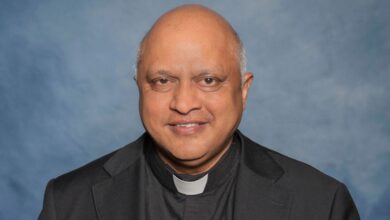Mass protests in Turkey after anbul mayor’s arrest. All you need to know | World News

Mass protests have erupted across Turkey following the arrest of anbul mayor Ekrem Imamoglu, a prominent opposition leader and potential presidential candidate.While protesters allege that his detention is politically motivated, the government denies these claims, calling the demonstrations an attempt to disrupt public order.
Here’s what you need to know:
Who is Ekrem Imamoglu?
Ekrem Imamoglu, 54, is a member of the opposition Republican People’s Party (CHP) and has served as anbul’s mayor since 2019. His victories in both the 2019 and 2024 municipal elections dealt a major blow to President Recep Tayyip Erdogan’s ruling Justice and Development Party (AKP), which had controlled anbul for 25 years ago. Imamoglu has been seen as a major political challenger to Erdogan and was widely expected to be the CHP’s candidate for the 2028 presidential elections.
Story continues below this ad
On March 19, Imamoglu was arrested along with around 100 others on charges of corruption, bribery, and alleged ties to an outlawed political group. His degree from anbul University was revoked just a day before his arrest, a move his supporters claim was an attempt to disqualify him from running for president.
What are the charges against Imamoglu?
Turkish prosecutors accuse Imamoglu of leading a criminal organisation engaged in systematic fraud, bid-rigging, and bribery. He was also initially charged with aiding the Kurdan Workers’ Party (PKK), a group considered a terror organisation Turkey, the United States, and the European Union. However, the court later dropped the terrorism-related charges, ruling that his detention would continue based on corruption allegations.
Imamoglu has denied all accusations, calling them “unimaginable slanders.”
How did the protests start?
Protests erupted immediately after Imamoglu’s arrest, with thousands gathering at anbul University. As demonstrations spread to other cities, they grew into Turkey’s largest anti-government protests in over a decade. The movement reached a peak on Saturday, March 23, with hundreds of thousands taking to the streets across the country despite a government-imposed ban on public gatherings.
Protesters see Imamoglu’s arrest as part of a broader crackdown on democracy and dissent. Some demonstrators argue that the protests are about more than just Imamoglu; they reflect deeper frustrations over issues like economic struggles, press freedoms, and the erosion of Turkey’s democratic institutions under Erdogan.Story continues below this ad
How has the Turkey government responded?
President Erdogan has dismissed the protests as “street terror” and vowed to maintain order. “We will not surrender to vandalism,” he said in a speech, accusing opposition groups of trying to destabilise the country.
Police have responded forcefully, using tear gas, rubber bullets, and water cannons to disperse crowds. More than 1,100 people have been arrested since the protests began, and at least 123 police officers have been injured, according to the Turkish interior minry. Authorities have also restricted access to social media, ordering platforms such as X (formerly Twitter) to block over 700 accounts, including those of journals and political figures.
Why are these protests significant?
These protests are the largest in Turkey in more than a decade, drawing comparisons to the 2013 Gezi Park movement, which began as a small environmental demonstration but escalated into a nationwide challenge to Erdogan’s rule.
What does this mean for Turkey’s political future?
Imamoglu’s arrest has intensified concerns over the state of democracy in Turkey. The CHP claims that Erdogan, who has been in power since 2003, is attempting to eliminate opposition candidates ahead of the next election. The current Turkish constitution bars Erdogan from running for another term in 2028, but many believe he may seek to amend the law to remain in power.Story continues below this ad
International human rights groups have condemned Imamoglu’s arrest, with organisations such as Amnesty International calling it part of a wider crackdown on political opposition, free speech, and press freedom.
Despite heavy-handed crackdowns, protests continue across the country. The opposition has vowed to challenge Imamoglu’s detention in court, and international pressure on the Turkish government is mounting.
The next scheduled presidential election is in 2028, but early elections are considered likely.







